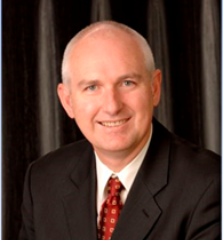Taylor Swift is back in the news. This time for the wrong reasons – it is alleged she lifted key words from the lyrics of another song and thereby infringed copyright. The claim was dismissed. It is interesting in so far as it deals with just what is protected by copyright. See:
The plaintiff, Sean Hall’s song, Playas Gon Play contains two brief phrases in the chorus: “Playas, they gonna play / And haters, they gonna hate”. The chorus of Taylor Swift’s song “Shake it Off” contains the very similar lyrics: “ ‘Cause the players gonna play, play, play, play, play / And the haters gonna hate, hate, hate, hate, hate /…”. There was no allegation that any other parts of the musical work or lyrics had been copied.
The defendant, Taylor Swift, filed a motion to dismiss i.e. strike out the claim. District Court Judge Michael W Fitzgerald granted the motion: see Sean Hall d.b.a. Gimme Some Hot Sauce Music, et al. v. Taylor Swift, et al., Case 2:17-cv-06882-MWF-AS, February 13, 2018.
In short, the Judge was unconvinced that the words were sufficiently original, stating
“In the early 2000s, popular culture was adequately suffused with the concepts of players and haters to render the phrases ‘playas… gonna play’ or ‘haters… gonna hate,’ standing on their own, no more creative than ‘runners gonna run’; ‘drummers gonna drum’; or ‘swimmers gonna swim,’”… “The concept of actors acting in accordance with their essential nature is not at all creative; it is banal.”
The Judge went on to say that not only was the concept not creative and banal, but the lyrics themselves “lack the modicum of originality and creativity required for copyright” and that they were “too brief, unoriginal, and uncreative to warrant protection under the Copyright Act.” In doing so he relied on the following passage in Nimmer on Copyright § 2.05[B] (2017):
[C]opyrightable works require two ingredients. The first is originality, which signifies that the work originates in the author rather than having been copied from past sources. The second is creativity signifying that the work has a spark that goes beyond the banal or trivial.
This passage stresses that not only must the work be original; it must also be creative. This is why, traditionally, short phrases and slogans have not been protected under US copyright law – unless they are taken from a larger well-known work, such as a catchy one-liner from a film or play.
I wonder whether the result might have been different in New Zealand? Arguably, the phrase “Playas, they gonna play / And haters, they gonna hate” is a catchy and clever alliteration and original in the sense that it repeats, rhymes and connects two disparate thoughts. Taylor Swift seems to have thought so and taken the essence of that expression.
Arguably, a chorus line is conceptually the same as a relatively short commercial phrase or slogan. In Sunlec International Pty Ltd v Electropar Ltd, Auckland HC, CIV-2007-404-5044, 24/9/2008, Wylie J decided whether the phrase/slogan “Field Friendly – The best choice for fieldwork” was copyrightable. The slogan was used to promote wiremaking products. It is not unlike the words in Playas Gon Play; repeating and emphasising the letter “F” and the word “Field”.
The Court cautioned that it is wrong to assume that slogans are incapable of holding copyright. It all came down to whether sufficient independent skill, labour and judgement had gone into creating the particular slogan.
The defendant, Electropar, argued that copyright could not subsist in “Field Friendly work” because it is no more than an advertising slogan and far too insubstantial to attract copyright. The Court disagreed, pointing out that under English and New Zealand law there is no requirement that the literary work have any literary merit, and the Courts have traditionally recognised protection in the most mundane of works, including exam papers football pool coupons.
Wylie J concluded that the slogan used language in a succinct and relatively memorable way and that this was sufficient to attract copyright:
[62] It cannot be asserted that copyright cannot exist in a slogan, simply because it is a slogan. Rather inquiry must be made into the circumstances in which the slogan was evolved and has been created. If independent skill, labour and judgment have been involved in its creation such that it satisfies the requirement of originality, and if it conveys information, instruction, or pleasure, then in my view a slogan can attract copyright protection.
While practically the result in New Zealand may well end up the same, a plaintiff would not need to convince the judge that the lyrics in question had that additional element – a creative spark, and that might possibly be enough to get it home.

